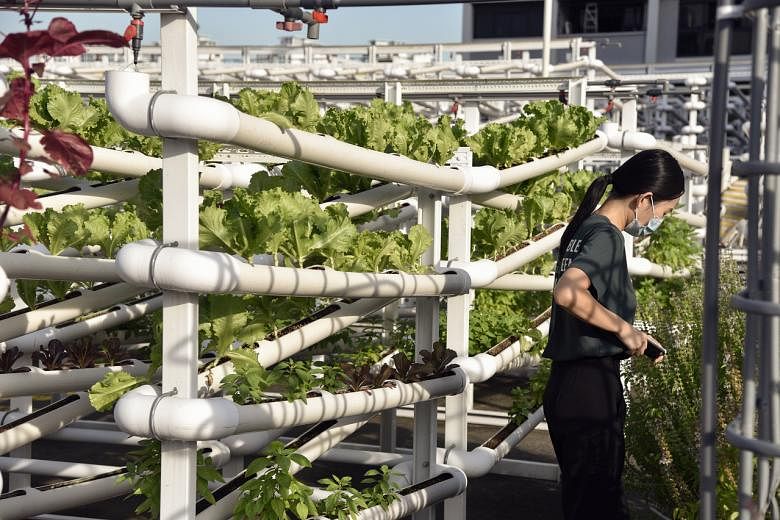SINGAPORE — The push to develop the local agricultural sector “is unlikely to succeed,” a local researcher told the Institute of Policy Studies (IPS) Singapore Perspectives conference on Monday (January 17th).
Dr Harvey Neo, senior researcher at the Lee Kuan Yew Center for Innovative Cities at the Singapore University of Technology and Design, said he liked the idea of developing the sector and noted the aspiration, but said added that it should “not be in a sense that you can’t even achieve it”.
Such ideas in Singapore’s Green Plan 2030 are “fictitious and almost fantastical, and it’s not realistic”, he said.
Under this plan, Singapore aims to produce 30% of its nutritional needs locally and sustainably by 2030.
One example that shows the difficulty of achieving this goal is how local farmers deal with uncertainty in their businesses, Dr Neo said.
Land leases, although renewed, are getting shorter and shorter, while some farmers have been asked to move their farms.
Although farmland has not been removed and alternative sites have been offered, it disrupts operations and is an inconvenience, he said.
“Do you want to provide an environment of stability that really convinces people that you really want it and that you are committed to providing the available resources needed for people to realize that vision, that aspiration?” said Dr. Neo.
He had been invited to comment on the plan by Christopher Gee, senior fellow at IPS and head of its governance and economics department, who moderated the panel on the theme of the city as green space.
Fellow panelist Dr Olivia Jensen noted that Singapore has a reputation for setting realistic goals and continuing to achieve them.
“And I think the reason why Singapore hasn’t set a net zero target may be because they don’t want to do that until there’s a clear idea of how. how it achieves that,” said Dr Jensen, senior scientist at the Lloyd’s Register Foundation Institute for the Public Understanding of Risk at the National University of Singapore.
Net zero refers to the plan to achieve net-zero greenhouse gas emissions by 2050 to help slow global warming. Other countries, such as the United Kingdom, are committed to it.
Dr. Jensen also spoke about the key role of sound governance and policy-making in achieving sustainability and climate action goals.
Singapore has done well on this front, including installing solar panels on the roofs of Housing Board apartments and improving access to public transport while encouraging cycling and walking with efforts to improve park connectors. she declared.
She added: “Acting across all sectors is always challenging from a policy design and implementation perspective. But it’s much more feasible and more likely to happen at the city level, where in many cases decision makers from different sectors can meet. each other physically and can view each other’s work in the same space.
“This kind of implementation of cross-sectoral policy planning is one of Singapore’s unique strengths.”











More Stories
Sri Lanka’s post-harvest losses in agricultural sector exceed Rs. 55 billion – – The island
SAU Vice-Chancellor emphasizes effective research in agricultural sector
Agriculture sector threatened by climate change, expert says – Pakistan